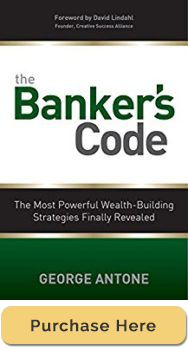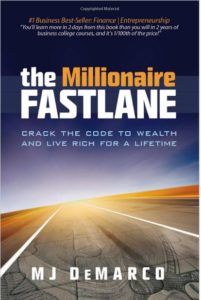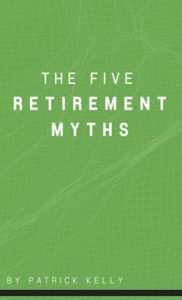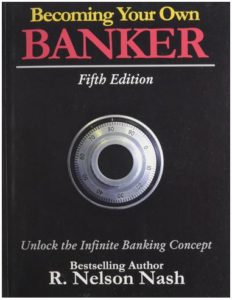The Bankers Code by George Antone: A Revolutionary Look at Private Banking
Have you ever wondered how some individuals consistently earn double-digit returns on their money while taking minimal risks? What if you could earn 11% interest on money you’ve lent out, while simultaneously generating additional returns on the same capital? This isn’t financial magic – it’s the art of private banking, and it’s exactly what George Antone reveals in “The Bankers Code.”
In this engaging book, Antone pulls back the curtain on the strategies that banks have used for centuries to build and maintain wealth. He introduces readers to the world of private lending, often called “hard money” lending, and demonstrates how everyday investors can adopt these powerful banking principles to transform their financial future.
Our review delves deep into Antone’s methodology, exploring how his banking strategies can help you recapture lost interest payments, create multiple streams of income from the same capital, and build wealth using time-tested banking principles. Whether you’re an experienced investor or just beginning to explore alternative investment strategies, Antone’s insights offer a fresh perspective on how money really works in our financial system.
The Bankers Code Book Review
There are people in America today that lend money out at over 10% interest, while paying 5% interest on the loaned money, AND ALSO receive 6% interest on the loaned money.
In total, the individual is earning 11% interest on the money loaned out. How is it possible? If you want to know how to do this sort of thing, you should read The Bankers Code by George Antone.
The book provides some insight into private lending, or “hard money” lenders. I definitely think it is worth a read based on that topic alone. But there is also an overall mindset of abundance that flows through the book and resonates long after you finish reading.
…And Then There Was Banking!
“the first step to making money – like the bank – is to adopt the mindset of the banker and play by the banker’s rules.” – George Antone
Antone suggests that the entire world is involved in a game called “the financing game,” and that in this game our opponents are the financial institutions. It’s not tough to believe when we hear the fact that almost 35% of our income goes to pay interest alone in America. And that doesn’t even include the principle of the payments. If you add income taxes into the mix, you’ll have to remove another 30% from the average American household.
Pretty bleak, right?
Antone furthers his premise by illustrating that the average American works from January 1st to August 31st just to pay the financial institutions and the government. A very sobering thought indeed.
But what if we didn’t have to deposit our money into the banks? What if we could have our own personal “bank” that would allow us to recapture some of that lost money? Antone wants to present the reader with an opportunity to do exactly what he suggests, and he showcases that this financial path is also much safer than any other available method for growing your wealth today.
It’s Nothing But A Financing Game
Why do people invest? Likely, for one of two reasons:
- Capital Gains
- Cash Flow
Those that aren’t in the upper class typically invest for capital gains only. They buy and hold stocks with the hope that the stocks will eventually be worth more (capital gains). Our financial institutions have trained us to think like along these lines. But Antone points out that there is another reason – cash flow.
“So How Do You Generate Cash Flow? Cash flow is about arbitrage (creating a spread between the cost of borrowed money and what an investment pays). Arbitrage is nothing more than a leveraged strategy.”
The Power of Arbitrage
Antone suggest that you need three criteria in place to have an arbitrage opportunity:
- An income-producing asset (such as an apartment building, rental property, insurance policy, business, bonds)
- A lender that is willing to lend against the asset as collateral (obtain leverage)
- Income that is larger than the loan payments and expenses related to the asset
This simple example may help to illustrate what Antone is saying here: Suppose a lender (private banker) chooses to lend $100,000 to a borrower at 10%. The mortgage paper that the borrower signed is now an income producing asset for the lender – fulfilling criteria #1.
The lender can now borrow against that asset, so the lender borrows $100,000 at a reduced rate of 7%. The reduced rate is available because of the reduced risk to the creditor. The income producing asset (the mortgage) is the collateral that is being put up to guarantee this loan. This fulfills criteria #2.
The lender is now receiving 10% interest on the original mortgage, and is paying 7% interest on the loan. That means there is a 3% spread, or arbitrage. This meets criteria #3.
Now you may be thinking that Antone is off his rocker if he thinks 3% is a good return on investment. But remember, the lender still has the $100,000. So the lender can choose to invest that $100,000 in real estate, or in the stock market, or wherever. But it’s still producing 3%.
“Bankers create collateral out of paper, borrow against it, and create an arbitrage opportunity immediately.”
Antone makes a great point here about real estate investors. He says they think that the money is always in the real estate, but in reality they are playing the financing game as well. The real estate is just collateral that the bank is willing to lend against so the investor can make a spread.
So how do you get started?
Which Team do You Prefer?
“The world is divided into three teams: Consumers, Producers, and Bankers.”
Consumers use products and services. These are the people with the cool cars and fancy electronics.
Producers provide products and services. These are the people that make the gadgets and cars that the Consumers must have to enjoy life.
Bankers finance both consumers and producers. These are the people that lend money to the Producer to build the gadgets and gizmos. And they also lend money to the Consumer so that he can afford to buy the hip new phone via payments.
Antone points out that the Bankers are great at shifting the risk to the Consumers and the Producers. Ultimately the Banker doesn’t have much skin in the game because collateral is used to guarantee the loans.
“The producer does all the work, takes all the risk, and gets paid last. The banker does the least amount of work, takes on the safer position, gets paid first, and makes more money.”
The mindset of a Producer is that they make money off of people. The people are the assets of the Producer because the people have the skills, the expertise, the creativity, or whatever to produce a product or service that sells.
The Banker makes money off of money. You could almost say that their employees are their dollars, because they make money off their money. For every dollar they have, they can lend and lend and lend again.
“The banker looks at the dollar bill as an employee who doesn’t sue them, doesn’t take time off, ask for a raise, take sick days.”
Antone states that there are three things that lender do:
- Find Borrowers,
- Find money to lend out, and
- Structure safer and profitable loans.
Arbitrage is the lifeblood of banking.
“I like to think of velocity of money as the “turning of the same money.” In other words, for the same money, as you “turn” it, you acquire more and more assets or profits. By “turning,” I mean investing the money and then retrieving it.”
Antone believes that if you want to be successful as a private lender, “the thing that will have the biggest impact is adopting the banker’s mindset.”
Hard Money Lender
Up to this point in the book I was wondering where Antone was getting these numbers. Who would pay 10% or 12% for a loan these days. Home loans are going for less than 4% these days. So who borrows at these rates?
The short answer to this question is – people that can’t get loans anywhere else in the time frame required. Here is where the term “hard money lender” comes into play. People often times find themselves in a situation where they need access to money quickly in order to secure a good investment. They are willing to pay a much higher interest rate because they don’t plan on carrying the loan for very long.
These people may be buying and selling properties within a few months, so carrying a loan that is 12% isn’t as big a deal as getting the property at a very discounted price. And that price might not be available in 30 days when the bank loan will be approved. They may need the loan in 15 days, or less. The “hard money lender” is the option of choice.
The term “hard money lender” has some negativity associated with it so many lenders just refer to themselves as “private money lenders.”
Your Financial Team
Antone suggests that you should have a team of people working with you. This team consists of four individuals:
- You
- Your Mortgage Broker (specialist in brokering private funds)
- Your Bookkeeper
- Your Accountant
Once your team is in place, you can start the process of being a private lender. Antone encourages everyone that is on this path to understand that they will not be able to fund every deal, and in fact they should feel good about funding just one or two in the first few months.
In addition it’s true that rules and regulations are different in every state, so you will have to do your homework if you want to be successful.
Seven Rules for Private Banking (Lending)
Rule No. 1: Banking is about safety. Shift the risk to the borrowers.
Rule No. 2: Banking is about financing, not about investing.
Rule No. 3: Be a disciplined money manager.
Rule No. 4: Be an honest banker.
Rule No. 5: Remember The Golden Rule of banking: “Whoever has the gold makes the rules!”
Rule No. 6: Adopt the banker’s habits.
Rule No. 7: Follow the rules!
Which brings us to…
Understanding the Banking System
Antone wants the reader to understand that most people in America only think of three ways to buy something.
- You can finance that purchase: Leasing
- Finance by Borrowing the money from a third-party lender, such as a bank or credit union.
- Paying cash
“With all three of these methods, you lose money. When leasing and borrowing from a traditional bank, you lose money (interest) to the third-party source. In the third traditional way to purchase a car – paying cash – you lose your opportunity to use that money for investing in something or buying something else.”
Antone suggests that as a private lender you can redirect the interest payments into your own financial institution – your banking system – this allows you to recapture the money. In essence you’ve borrowed money from your own banking system, and now you’re just paying it back to yourself.
What Happens to the Money inside Your Bank?
The money that resides in the banking system can grow in interesting ways. Antone suggests five ways it can grow. All of these are dependent on some form of permanent life insurance as the banking instrument used to save and borrow against. That may shock some people, but essentially it’s just the vehicle that all of this banking works within.
- It has to be growing in a tax-advantaged environment.
- By using the power of velocity of money, we start making money work for us and get higher returns.
- We gain the opportunity to invest our personal cash that we normally would have used to buy stuff. That cash can now be invested.
- The money residing in the banking system should be earning interest while sitting there.
- Depending on the vehicle, you should be able to make a small spread (i.e. arbitrage) on that money in the banking system.
Antone finishes the book by talking about some of the obvious objections to this sort of investing. He discusses real estate investors, stock market investors, and more. Ultimately he showcases that creating your own bank offers the safest and most secure road forward, while still giving you (the banker) all the investment options that you could want.
In the end he states that he was given five “assignments” to kick start his private banking process, they were:
- First assignment: Find the five most active real estate investors in the San Francisco Bay Area.
- Second assignment: Find an attorney familiar with laws related to raising capital and capable of keeping me in compliance with those laws.
- Third assignment: Find three hard-money brokers.
- Fourth assignment: Find an escrow service.
- Fifth assignment: Find the best coach on the planet.
“A coach is not your friend. A coach will change your life. Coaches will push you more than anyone else will because they believe in you more than you believe in yourself.”
There is plenty more in the book that I didn’t go over in this review. If you are at all interested in private money lending or private banking, this book is an excellent place to start. The concepts and principles in this book are true and profitable.
This book presents just some of the things that are possible with a personal bank. Here at Insurance and Estates we love the possibilities that permanent life insurance offer. Many refer to private banking as Infinite Banking or IBC, but it’s essentially the same thing at it’s foundation —People are using permanent life insurance policies to become a private banker and gain the benefits of those that make the rules in the financing game. If you want help with private banking with life insurance, we’d love to talk.







4 comments
Paul Chase
Where do I find the best coach on the planet?
Steven Gibbs
Hello Paul, that’s an interesting question:) If you find him/her check back and let us know who it is…
Best, Steve Gibbs for I&E
Steven Gibbs is a licensed insurance agent, and the following agent
license numbers of Steven Gibbs are provided as required by state law:
Resident License; AZ agent #17508301,
Non-resident Licenses: TX agent #2273189, CA agent #0K10610,
LA agent #769583, MA agent #2049963, MN agent #40563357,
UT agent #655544.
Candy and Gary Golay
Thank You, For THE information, We will order the book. We do this to some degree as private investor
With properties and equipment or just about anything
But need the private banking concept part.
HAVE BLESSED FOURTH OF JULY,
Candy and Gary Golay 208-308-2260
Insurance&Estates
Thank you both for your kind comment and for reading. You’re welcome to connect with our IBC guru Barry Brooksby at barry@insuranceandestates.com for more insights at your convenience.
Best, Steve Gibbs, for I&E